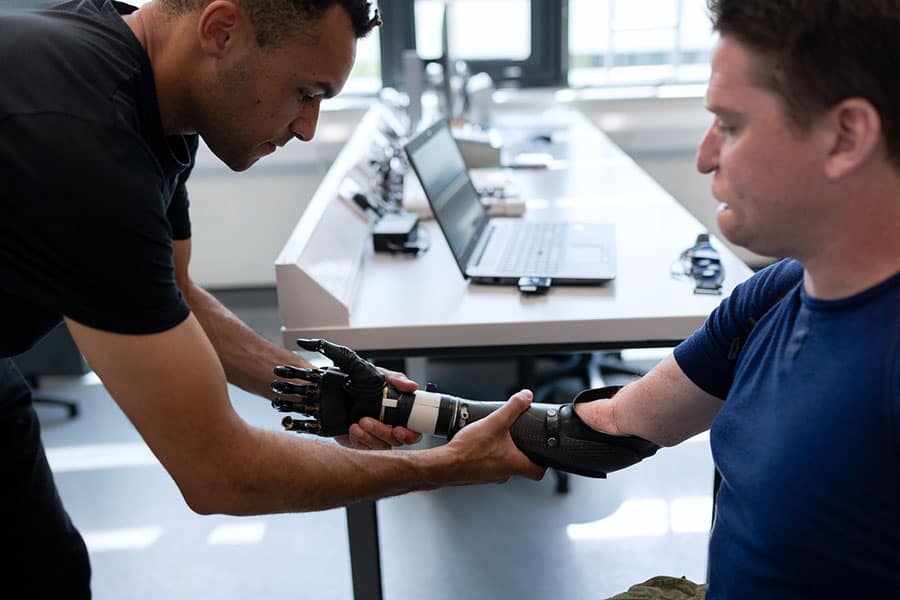£5m awarded to projects to drive forward cutting-edge assistive tech to support veterans’ healthcare

The UK Government has revealed that a total of £5 million has been awarded to 22 projects to drive forward pioneering treatments and assistive technologies to support veterans’ healthcare.
Among these innovative projects are assistive technology solutions and research that can help veterans remain independent, such as Imperial College London research to improve prosthetics and Blesma’s project that compares the effectiveness of assistive technologies for veterans who use wheelchairs.
According to the government, these projects have the potential to contribute to mainstream and improved treatments by the NHS in the future.
The newly announced recipients of the Office for Veterans’ Affairs’ (OVA) Health Innovation Fund, delivered in collaboration with the Defence and Security Accelerator (DASA), include leading academic institutions, private sector companies, and charities from across the UK.
The funding will help spur innovation, ensure that treatments are informed by the latest research and developments in clinical care, and bring the best of UK science and technology to the forefront of veterans’ health.
Four winning and complementary projects are from Imperial College London will look at further research to improve prosthetics for amputee veterans. The four projects will consider areas including evaluating direct skeletal fixation surgery; investigating the long-term consequences of low back pain linked to prosthetic users; delivering an orthopaedic implant for amputees to treat residual limb pain and ulceration; and predicting the impact of socket redesign, daily task adherence, and prosthetic fixation on long-term bone health.
Blesma: The Limbless Veterans Charity’s project will explore the lived experience of injured veterans who are wheelchair and electronic powered vehicle users. The charity will then provide a comparison of the effectiveness of selected categories of assistive technologies.
Radii Devices – working with the Universities of Bath and Southampton, Blesma, Portsmouth Hospitals University NHS Trust, and Unai – will develop an app to allow prosthesis users to record discomfort, with the data enabling insights for prosthetists to optimise comfort and deliver socket fitting that is right first time.
Minister for Veterans’ Affairs Johnny Mercer said: “I’m delighted that we’re providing funding to these projects today. Utilising the latest developments in research and clinical care, these initiatives will spur innovation and new techniques to treat veterans – both with physical and mental health conditions – who have been injured in the line of duty.”
The Veterans’ Health Innovation Fund was announced in the Autumn 2021 Budget and Spending Review by the then Chancellor of the Exchequer, Rishi Sunak.
The projects were chosen through competitive competition, with the Minister for Veterans’ Affairs deciding which organisations would receive funding, according to government.
Secretary of State at the new Department for Science, Innovation & Technology, Michelle Donelan, commented: “It is great to see the Office for Veterans’ Affairs providing funding to drive forward cutting-edge science and technology that will change lives.
“Starting with those who have been wounded while serving this country, these initiatives have the potential to be utilised more widely, putting UK healthcare at the forefront of innovation.”
A full list of the winning projects can be found here.
OVA has also confirmed that the UK will host a Five Eyes International Ministerial Conference on Veterans later this year. The conference will bring together partners from the United States, Canada, Australia, and New Zealand to discuss and share best practice on veterans issues.

